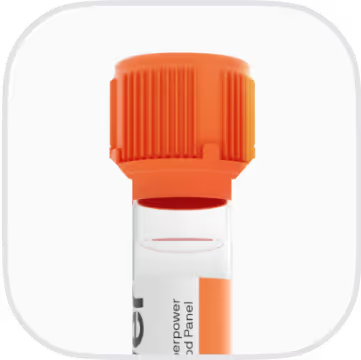What are Celiac Disease biomarkers
Celiac disease biomarkers are blood signals that reveal the body’s misdirected immune reaction to gluten and its effect on the small intestine. When gluten is eaten, an intestinal repair enzyme alters gluten fragments and the immune system makes antibodies; these spill into the bloodstream and point back to gut injury. Key markers are antibodies against your own repair enzyme (tissue transglutaminase, tTG), antibodies to modified gluten fragments (deamidated gliadin peptides, DGP), and antibodies targeting the gut’s supporting layer (endomysial antibodies, EMA). Together, they indicate that gluten is triggering autoimmunity and ongoing intestinal inflammation. Complementing these are inherited genetic markers (HLA-DQ2 or HLA-DQ8) that describe susceptibility—the immune “hardware” that presents gluten to immune cells—though they do not show current activity. Used together, these biomarkers help identify celiac disease, reflect how active the immune response is, and track whether a gluten-free diet is calming the attack and allowing the intestinal lining to recover.
Why is blood testing for Celiac Disease important?
- Check for anemia, nutrient gaps, and inflammation from celiac-related malabsorption.
- Spot iron-deficiency anemia; low ferritin and hemoglobin explain fatigue and paleness.
- Detect folate shortages; low folate reflects upper small-intestine malabsorption.
- Identify B12 deficiency; low B12 can cause numbness, memory issues, and anemia.
- Flag ongoing inflammation; elevated ESR suggests active inflammation or another condition.
- Guide treatment and monitor recovery; levels steer supplements and show gluten-free healing.
- Protect fertility and pregnancy; correcting iron and folate lowers complications risk.
- Best interpreted with celiac serology (tTG-IgA) and your symptoms.
What insights will I get?
Celiac Disease blood testing provides insight into how well your body is absorbing and utilizing key nutrients, which is essential for energy production, immune defense, brain function, and overall metabolic stability. At Superpower, we assess Hemoglobin, Ferritin, Folate, B12, and ESR to capture a broad picture of how Celiac Disease may be affecting your system.
Hemoglobin measures the oxygen-carrying capacity of your blood, while Ferritin reflects iron storage. Folate and B12 are vital B vitamins needed for DNA synthesis, nerve health, and red blood cell formation. ESR (erythrocyte sedimentation rate) is a general marker of inflammation. In Celiac Disease, chronic inflammation and damage to the small intestine can impair absorption of iron, folate, and B12, leading to anemia and low energy. Elevated ESR may signal ongoing inflammation.
Healthy levels of Hemoglobin and Ferritin indicate stable oxygen delivery and iron reserves, supporting endurance and cognitive clarity. Adequate Folate and B12 are crucial for nerve integrity and mental sharpness. A normal ESR suggests minimal inflammation, reflecting a more stable immune environment. Together, these markers help reveal whether your body is maintaining resilience or if nutrient absorption is compromised by Celiac Disease.
Interpretation of these biomarkers can be influenced by factors such as age, pregnancy, acute illness, certain medications, and laboratory methods. These variables may shift results, so context is important when understanding what your numbers mean.







.avif)



.svg)





.svg)


.svg)


.svg)

.avif)
.svg)










.avif)
.avif)
.avif)


.avif)
.avif)




.svg)




.avif)


